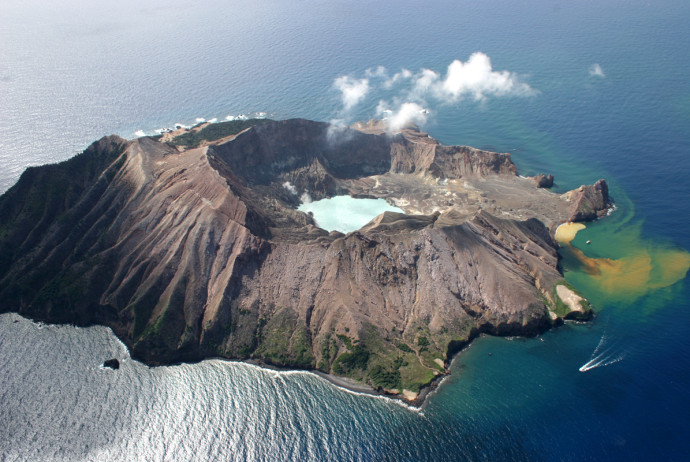Seawater of the Future?
This post is a press release from the University of Otago related to White Island expedition, to which the Marine Biology Lab of the ULB is participating.
In the first week of December a team of scientists [including Antonio Agüera] from all over the world will descend on Whakatane in the Bay of Plenty. These chemists, biologists, geologists, botanists and marine scientists are planning a “blitz” on the nearby marine volcano: Whakaari or White Island. Their aim: to find out as much as they can about the currents, the water, the algae, and the marine animals as they can in one week. White Island is special because the volcano heats up the water and bubbles carbon dioxide into it, through vents on the flanks of the volcano. This creates a marine environment that is warmer and more acidic than “normal” seawater – the kind of environment that we can expect to see as CO2 in the air is absorbed by the oceans over the next several decades. In effect, it creates Seawater-of-the-Future.
Scientists have been looking at the effects of warming and acidification on plant, animals and even ecosystems in the lab, but there are serious limitations to that kind of study. Having a real-life lab, where animals and plants have lived their whole lives in Seawater-of-the-Future, makes a big difference.
“We need to know more about how this kind of environment varies over time,” says expedition leader Dr. Abby Smith. “We hope to find out where the water is warmest, and where the bubbles make the water the most acid. This work will form the baseline for further studies, and allow scientists to plan their studies better. The best way to find out more about White Island is for us to go there all together.”
The White Island Blitz is being organised through the University of Otago Ocean Acidification Research Theme. Most of the 17 scientists who are coming along are from University of Otago or from the University of Auckland, but there are participants from Australia, Belgium, and the UK as well. This scientific expedition will take place in the first week of December, with fishing boats, divers, snorkelers, and a variety of equipment and samplers going out 48 km offshore to White Island for four days.
On Monday November 30 the Whakatane community and media will have a chance to meet the scientists and hear more about the expedition. And throughout the week a community engagement programme will invite locals, including tourism operators, teachers, and school children to learn more about their marine environment.
For further information contact, [or contact us directly]:
Associate Professor Abby Smith, Department of Marine Science, University of Otago
Chief Scientist of Expedition
Sally Carson, Department of Marine Science, University of Otago
Community Engagement Coordinator for Expedition

